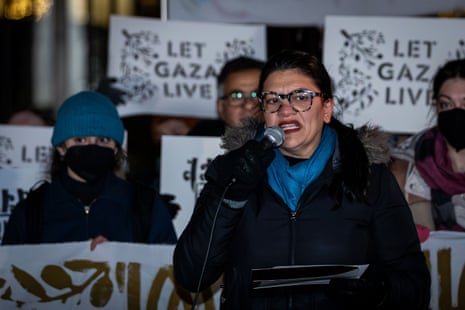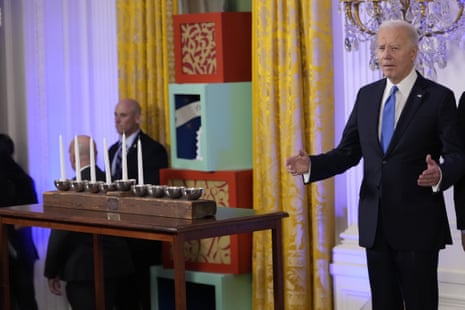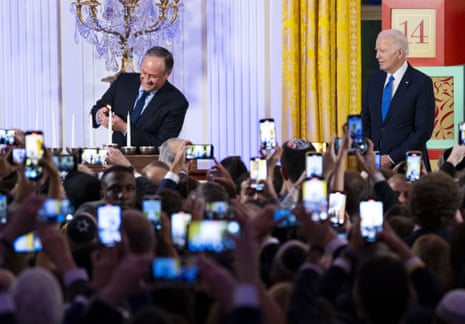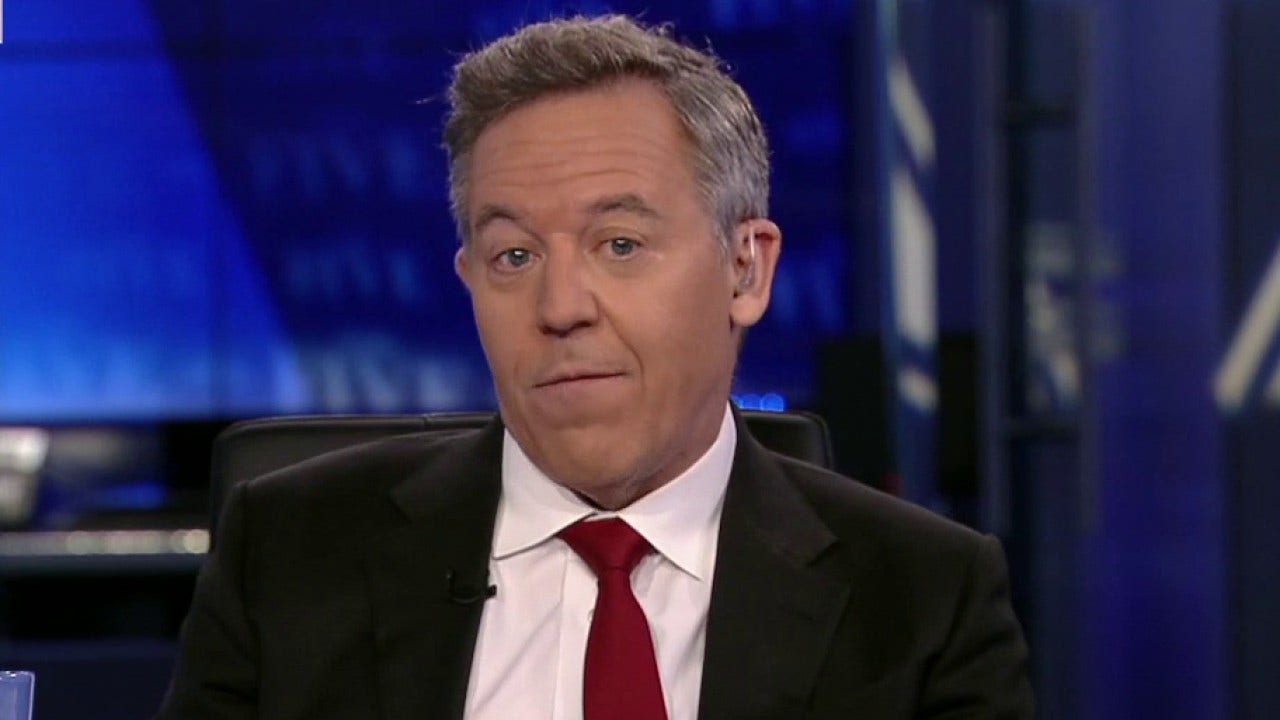Israel-Gaza war live: heavy fighting in Gaza reported overnight; UN general assembly to vote on ceasefire | Israel-Gaza war
Israel has continued its bombing of Gaza as fierce fighting raged on Tuesday, with Hamas saying clashes had taken place in central Gaza and witnesses reporting deadly Israeli strikes in the south of the territory.
Agence France-Press reports that strikes on Monday targeted Gaza’s main southern city of Khan Yunis, now the centre of the fighting, as well as Rafah, a city on the border with Egypt where tens of thousands of people are seeking shelter.
Some of the heaviest close-quarters fighting in more than two months of conflict took place over the weekend, as the Israel Defense Forces tried to consolidate control of urban centres in northern Gaza and pursued Hamas leaders in the heart of the biggest city in the south, Khan Younis.
Israeli Defence Minister Yoav Gallant said late on Monday that “Hamas is on the verge of dissolution – the IDF is taking over its last strongholds”.
Key events
There has been some political pushback in Israel after reported comments by Benjamin Netanyahu that the Oslo accords led to as many Israelis being killed as the attacks on 7 October did, it just happened over a more prolonged period of time.
It has been reported that at a foreign affairs and defense committee meeting, Netanyahu described the Oslo accords as “the original sin”.
Likud Knesset member Danny Danon is reported to have responded by saying “There is no place to compare, both because we are in the middle of a war, and because the events of that black Saturday happened in a number of hours, a number of killed and wounded that Israel has never seen since its founding.”
Opposition leader Yair Lapid has been highly critical Netanyahu on social media, saying:
The State of Israel is at war. We are all going from one funeral to the next, from shiva to shiva. The soldiers are fighting heroically. The heart breaks anew every morning in front of the pictures of those killed.
It is impossible to understand the level of disconnect and cynicism of the prime minister, who is conducting a wicked political campaign during wartime whose entire purpose is to absolve himself of responsibility, to accuse others, and to create hatred. The nation deserves alternative leadership.
Some observers believe that Netanyahu will be politically vulnerable after the war ends, as attention will turn to how the events of 7 October were allowed to happen under his watch.
Israel’s military has already said there were failures of intelligence gathering in the run-up to the surprise Hamas attack inside Israel which killed at least 1,200 people, and during which an estimated 240 people were seized and abducted back to Gaza as hostages.
The Oslo accords established the Palestinian National Authority, granting limited self-governance over patches of the West Bank and Gaza Strip. Further negotiations were planned at the time.
Some prominent Palestinians regarded the accords as a form of surrender while rightwing Israelis opposed giving up settlements or territory. The political charge against Oslo was led by future prime ministers Ariel Sharon and Netanyahu himself.
The head of the World Health Organization (WHO) on Tuesday said he was concerned about the prolonged checks of health convoys in the Gaza Strip and the detention of health workers there.
Reuters reports that in a post on social media, Tedros Adhanom Ghebreyesus said a WHO-led mission to Al-Ahli hospital in Gaza on Saturday was stopped twice at a checkpoint on the way to north Gaza and on the way back, and that some staff of the Palestine Red Crescent Society were detained on both occasions.
“We are deeply concerned about prolonged checks and detention of health workers that put lives of already fragile patients at risk,” Tedros said.
Here are some of the latest images sent to us over the news wires from Gaza and Israel.




The number of Palestinians killed by Israeli forces in the occupied West Bank city of Jenin on Tuesday has risen to four, the Palestinian health ministry has reported.
AFP reports the ministry did not provide further details on the fatalities, while the Palestinian Red Crescent Society said they were killed in a drone strike.
About 270 Palestinians have been killed by Israeli fire and settler attacks in the West Bank, Palestinian officials say, as violence has escalated in the territory since the outbreak of the war on 7 October.
An AFP photographer saw Israeli military vehicles entering Jenin refugee camp on Tuesday and a drone flying above.
Israeli forces “continue to storm Jenin camp and ambulance crews are prevented from entering to deal with medical cases without prior coordination”, the Red Crescent said in a statement.
There was no immediate comment on the killings from the Israeli military, which has occupied the West Bank since the 1967 Arab-Israeli war.
The Palestinian news agency Wafa reports that 20 civilians were killed, and dozens more were injured, when Isreal bombed a number of homes in Rafah, in the south of the Gaza Strip, on Tuesday. The Wafa correspondent there said that there were still missing people under the rubble.
The claims have not been independently verified.
Yemen’s Houthis have said that they carried out a military operation against a Norwegian commercial tanker.
The group targeted the tanker with a rocket after the crew refused to respond to warnings, Reuters reports Houthi military spokesperson Yehia Sareea said in a televised statement.
He added that the group had managed to obstruct the passage of several ships in recent days, acting in support of the Palestinians.
He vowed that the Houthis would continue blocking all ships heading to Israeli ports until Israel allows the entry of food and medical aid into the Gaza Strip.
Summary of events so far
It’s 9:01am in Gaza and Tel Aviv. Here are some of the latest developments:
-
The UN general assembly is due to vote Tuesday on a non-binding resolution demanding “an immediate humanitarian ceasefire” in Gaza – a call that the paralysed security council has so far failed to make.
-
Israel has continued its bombing of Gaza as fierce fighting raged on Tuesday, with Hamas saying clashes had taken place in central Gaza and witnesses reporting deadly Israeli strikes in the south of the territory. Agence France-Press reports that strikes on Monday targeted Gaza’s main southern city of Khan Yunis, now the centre of the fighting, as well as Rafah, a city on the border with Egypt where tens of thousands of people are seeking shelter.
-
Israel said it will open two additional checkpoints to examining relief supplies before dispatching them to the Palestinian territory through the Rafah gateway. No new direct crossings will be opened, Israel stressed on Monday, but the Nitzana and Kerem Shalom crossings will be used to carry out checks before sending the trucks through Rafah, Agence France-Presse reports.
-
The United Nations Office for the Coordination of Humanitarian Affairs (Ocha) has highlighted in its daily update the spread of infectious diseases in Gaza as the war continues. “Due to the overcrowding and poor sanitary conditions at UNRWA shelters in the south, there have been significant increases in some communicable diseases and conditions such as diarrhoea, acute respiratory infections, skin infections and hygiene-related conditions like lice.”
-
A land-based cruise missile launched from Houthi-controlled Yemen has struck a commercial tanker vessel, causing a fire and damage but no casualties, two US defence officials have told Reuters. The Iran-aligned Houthis have waded into the Israel-Gaza conflict – which has spread around the Middle East since the war erupted on 7 October, attacking vessels in vital shipping lanes and firing drones and missiles at Israel itself.
-
The US president, Joe Biden, hosted a Hanukkah reception at the White House on Monday night, vowing to continue to stand with Israel in its war with Hamas while saying that a “surge of antisemitism” around the globe is “sickening”. Reuters is reporting that in his speech, Biden alluded to the complex relationship he has with the Israeli prime minister, Benjamin Netanyahu, suggesting Netanyahu is in a “tough spot” and that the two have had their share of disagreements over the years and at present.
-
Israel’s defence minister, Yoav Gallan, on Monday said the next phase of the war in Gaza would be lower-intensity fighting against “pockets of resistance” and would require Israeli troops to maintain their freedom of operation, according to the Associated Press. “That’s a sign the next phase has begun,” he said. He’s pushed back against international calls to wrap up the country’s military offensive in the Gaza Strip, saying the current phase of the operation against the Hamas militant group will “take time”. In a briefing with the Associated Press, Gallant refused to commit to any firm deadlines, but he signalled that the current phase, characterised by heavy ground fighting backed up by air power, could stretch on for weeks and that further military activity could continue for months.
-
The White House said it was “concerned” over reports that Israel’s military is using white phosphorus bombs against target in Lebanon. At a morning briefing, John Kirby, strategic communications coordinator for the national security council, said use of the highly incendiary substance could legally be used for a smokescreen to conceal military operations, but that the US would seek clarification from Israel about how stocks were being used.
-
Israel’s defence minister Yoav Gallant gave a fleeting and noncommittal answer when asked at his Monday briefing about reports the country was using white phosphorus in military attacks. The Israel Defense Forces operate “according to international law”, he said.
-
Gallant also said Israel had “no intention” of staying permanently in Gaza after the completion of its military campaign to eliminate Hamas. The country was open to discuss alternatives about who will control the territory as long as it is not a group hostile to Israel, he said, and would consider an agreement with Hezbollah in Lebanon if security guarantees were received.
-
European leaders Leo Varadkar of Ireland, Pedro Sánchez of Spain, Robert Abela of Malta and Alexander De Croo of Belgium, wrote to the EU president, Charles Michel, calling for a discussion about a Gaza ceasefire at the union summit on 14 and 15 December. US network CNN said the letter expressed “alarm” over the deteriorating humanitarian situation in Gaza and questions Israel’s military campaign and its effect on the civilian population.
-
The Hamas-run Gaza health ministry updated casualties since the start of the Israel-Hamas war on 7 October, stating that 18,205 Palestinians have been killed, and 49,645 injured. The reported death toll has risen by more than 500 in the two days from Saturday, when it stood at 17,700, the ministry said.
-
Qatar has spoken with Israel to gauge interest in talks about a possible new pause in the fighting in Gaza, according to a journalist for Axios. The report directly contradicts the position of diplomats at the annual Doha Forum conference in Qatar, who have said they are not expecting any reopening of Gaza ceasefire talks for some weeks.
On the same night US president Joe Biden hosted a Hanukah reception at the White House, a protest took place outside by Jewish organisations calling for a ceasefire.
Here are some of the images from the event:



The United Nations Office for the Coordination of Humanitarian Affairs (Ocha) has also highlighted in its daily update the spread of infectious diseases in Gaza as the war continues:
Due to the overcrowding and poor sanitary conditions at UNRWA shelters in the south, there have been significant increases in some communicable diseases and conditions such as diarrhoea, acute respiratory infections, skin infections and hygiene-related conditions like lice.
On average, UNRWA shelters located in the middle and southern areas are currently sheltering nine times the number of IDPs [internally displaced persons] as was planned for.
Reports are coming in from the Reuters news agency that three Palestinians were killed on Tuesday during an Israeli raid on the occupied West Bank city of Jenin – that’s according to the Palestinian health ministry.
An Israeli drone attack killed the three Palestinians and injured others, medical sources say, adding that the Israeli raid included the city of Jenin and its refugee camp.
We don’t have any more information at this stage, but we’ll keep across developments as they come to hand.
The United Nations Office for the Coordination of Humanitarian Affairs (Ocha) has released its daily update overnight.
Here is what they have to say about the fighting taking place:
Between the afternoons of 10 and 11 December, 208 Palestinians were killed and another 416 were injured, according to the [Hamas run] Ministry of Health (MoH) in Gaza. Heavy Israeli bombardments from air, land, and sea across Gaza continued, especially in the central part, including Al Maghazi and An Nuseirat Refugee Camps, as well as in parts of northern Gaza. Meanwhile, intense ground operations and fighting between Israeli forces and Palestinian armed groups continued, especially in Khan Younis, Jabalya, and the northern parts of Gaza Strip. Additionally, air strikes have reportedly targeted residential homes in the western and central parts of Rafah, areas designated as safe for displaced Palestinians by the Israeli army. The firing of rockets by Palestinian armed groups into Israel also continued.
The update also notes the difficulties with aid distribution and mentions a one-off high risk mission to a hospital:
Limited aid distributions are taking place in Rafah governorate. In the rest of the Gaza Strip, aid distribution has largely stopped over the past few days, due to the intensity of hostilities and restrictions of movement along the main roads, except for limited fuel deliveries to key service providers and a one-off high-risk mission on 9 December to Al Ahli hospital.
Ocha says the fighting is making aid deliveries difficult and notes a shortage of trucks in Gaza too:
On 11 December, as of 22:00, 100 trucks carrying humanitarian supplies entered Gaza from Egypt, the same volume recorded on most days since the resumption of hostilities on 1 December. This is well below the daily average of 500 truckloads (including fuel) that entered every working day prior to 7 October. The ability of the UN to receive incoming aid has been significantly impaired over the past few days by several factors. These include a shortage of trucks within Gaza; the continuing lack of fuel; telecommunications blackouts; and the increasing number of staff who were unable to travel to the Rafah crossing due to the intensity of hostilities.
US president Joe Biden hosted a Hanukkah reception at the White House on Monday night, vowing to continue to stand with Israel in its war with Hamas while saying that a “surge of antisemitism” around the globe “is sickening.”
Nearly 800 guests filled the East Room, Associated Press reports. A menorah is lit nightly during the eight-day Jewish festival, which this year is being celebrated from 7 December until Friday.
Reuters is reporting that in his speech, Joe Biden alluded to the complex relationship he has with Israeli prime minister Benjamin Netanyahu, suggesting Netanyahu is in a “tough spot” and that the two have had their share of disagreements over the years and at present.
Biden recalled his decades-long relationship with Netanyahu and noted he made an inscription on an old photograph of the two men, using a nickname for the Israeli leader. “I wrote on the top of it, ‘Bibi I love you but I don’t agree with a damn thing you had to say.’”
“It’s about the same today,” Biden said, to scattered applause from the largely Jewish audience, reports Reuters. Biden added “I’ve had my differences with some Israeli leadership.”
He did not elaborate on what differences between the two men remained, though in recent weeks they have included issues spanning the current war against Hamas and treatment of Palestinians.


For a sum up of the latest events in the last 24 hours, you can see our full report:
Heavy fighting was reported across Gaza late into the evening on Monday, as Israel’s defence minister pushed back against international calls to wrap up the country’s military offensive in the territory, saying the current phase of the operation against Hamas would “take time”.
Yoav Gallant told the Associated Press the current phase of the conflict, characterised by heavy ground fighting backed up by air power, could stretch on for weeks and that further military activity could continue for months.
Read the rest of our report here:
More on that anti-ship cruise missile launched from Houthi-controlled Yemen hitting a commercial tanker vessel.
The US military’s central command, which oversees American forces in the Middle East, has said this in a statement posted on social media platform X:
There were no U.S. ships in the vicinity at the time of the attack, but the (U.S. Navy destroyer) USS MASON responded to the M/T STRINDA’s mayday call and is currently rendering assistance
CENTCOM Statement on missile attack in the Bab-el-Mandeb
At around 4 p.m. EST on December 11, the Motor Tanker STRINDA was attacked by what is assessed to have been an Anti-Ship Cruise Missile (ASCM) launched from a Houthi controlled area of Yemen while passing through the… pic.twitter.com/OJDoubAU2D— U.S. Central Command (@CENTCOM) December 12, 2023
A land-based cruise missile launched from Houthi-controlled Yemen has struck a commercial tanker vessel, causing a fire and damage but no casualties, two US defence officials have told Reuters.
The attack on the tanker STRINDA took place about 111km (60 nautical miles) north of the Bab al-Mandab Strait at about 9pm GMT on Monday, one of officials said.
The US Navy destroyer USS Mason was there and provided aid, according to officials.
The chemical tanker is Norway flagged, and its Norwegian owner, Mowinckel Chemical Tankers, and manager Hansa Tankers could not be immediately reached for comment outside office hours.
The STRINDA had loaded vegetable oil and biofuels in Malaysia and was headed for Venice, Italy, according to data from ship tracking firm Kpler.
The Iran-aligned Houthis have waded into the Israel-Gaza conflict – which has spread around the Middle East since the war erupted on 7 October, attacking vessels in vital shipping lanes and firing drones and missiles at Israel itself.
On Saturday, the Houthis said they would target all ships heading to Israel, regardless of their nationality, and warned international shipping companies against dealing with Israeli ports.
It was not immediately clear whether the STRINDA had any ties to Israel.
The UN general assembly is due to vote Tuesday on a non-binding resolution demanding “an immediate humanitarian ceasefire” in Gaza – a call that the security council has so far failed to make.
The United States, one of only five permanent members of the Security Council, used its veto on Friday to halt a draft text calling for a ceasefire.
In a bid to build pressure, Arab countries called for the new special session of the general assembly after a visit to the Rafah border by more than a dozen security council ambassadors.

The draft text, seen by Agence France-Presse, largely reproduces the resolution blocked in the Council on Friday by the United States.
Associated Press reports that Palestinians are hoping the vote will demonstrate widespread global support for ending the Israel-Hamas war.
After the United States vetoed a resolution in the Security Council on Friday demanding a humanitarian ceasefire, Arab and Islamic nations called for an emergency session of the 193-member General Assembly on Tuesday afternoon to vote on a resolution making the same demand.
Unlike security council resolutions, general assembly resolutions are not legally binding. But as a UN spokesperson said Monday, the assembly’s messages “are also very important” and reflect world opinion. The Palestinian UN ambassador says he hopes for a high assembly vote.
Israel said it will open two additional checkpoints to examining relief supplies before dispatching them to the Palestinian territory through the Rafah gateway.
International aid organisations have struggled to get supplies to desperate Gazans under Israeli bombardment, with only the Rafah crossing in Egypt open.
No new direct crossings will be opened, Israel stressed on Monday, but the Nitzana and Kerem Shalom crossings will be used to carry out checks before sending the trucks through Rafah, Agence France-Presse reports.
“This is being done to improve the volume of security screenings of aid entering Gaza via the Rafah Crossing and will enable us to double the amount of humanitarian aid entering Gaza,” the army said on X (formerly Twitter).
The additional checkpoints will screen “trucks containing water, food, medical supplies and shelter equipment”, according to a joint statement from the Israeli army and COGAT, the defence ministry body responsible for Palestinian civilian affairs.
It emphasised that “no supplies will be entering the Gaza Strip from Israel”, only via Egypt.
Israel has continued its bombing of Gaza as fierce fighting raged on Tuesday, with Hamas saying clashes had taken place in central Gaza and witnesses reporting deadly Israeli strikes in the south of the territory.
Agence France-Press reports that strikes on Monday targeted Gaza’s main southern city of Khan Yunis, now the centre of the fighting, as well as Rafah, a city on the border with Egypt where tens of thousands of people are seeking shelter.
Some of the heaviest close-quarters fighting in more than two months of conflict took place over the weekend, as the Israel Defense Forces tried to consolidate control of urban centres in northern Gaza and pursued Hamas leaders in the heart of the biggest city in the south, Khan Younis.
Israeli Defence Minister Yoav Gallant said late on Monday that “Hamas is on the verge of dissolution – the IDF is taking over its last strongholds”.
Welcome and opening summary
Hello and welcome to our blog covering the Israel-Gaza war. It’s 5:47am in Gaza and Tel Aviv, my name is Reged Ahmad. I’ll be with you for the next while.
Fighting has continued on the ground in the Gaza Strip, accompanied by repeated aerial bombardments from Israel. Rockets have also been fired into Israel from Gaza, and from anti-Israeli forces in Lebanon.
More on that in a moment but first, here is a summary of the latest so far:
-
The UN general assembly is due to vote Tuesday on a non-binding resolution demanding “an immediate humanitarian ceasefire” in Gaza – a call that the paralysed Security Council has so far failed to make.
-
Israel’s defense minister Yoav Gallan on Monday said the next phase of the war in Gaza would be lower-intensity fighting against “pockets of resistance” and would require Israeli troops to maintain their freedom of operation, according to the Associated Press. “That’s a sign the next phase has begun,” he said. He’s pushed back against international calls to wrap up the country’s military offensive in the Gaza Strip, saying the current phase of the operation against the Hamas militant group will “take time.” In a briefing with the Associated Press, Gallant refused to commit to any firm deadlines, but he signaled that the current phase, characterised by heavy ground fighting backed up by air power, could stretch on for weeks and that further military activity could continue for months.
-
The White House said it is “concerned” over reports that Israel’s military is using white phosphorus bombs against target in Lebanon. At a morning briefing, John Kirby, strategic communications coordinator for the national security council, said use of the highly incendiary substance could legally be used for a smokescreen to conceal military operations, but that the US would seek clarification from Israel about how stocks were being used.
-
Israel’s defense minister Yoav Gallant gave a fleeting and noncommittal answer when asked at his Monday briefing about reports the country was using white phosphorus in military attacks. The Israeli Defense Forces operate “according to international law”, he said.
-
Gallant also said Israel had “no intention” of staying permanently in Gaza after the completion of its military campaign to eliminate Hamas. The country was open to discuss alternatives about who will control the territory as long as it is not a group hostile to Israel, he said, and would consider an agreement with Hezbollah in Lebanon if security guarantees were received.
-
Israel will open the Kerem Shalom crossing into Gaza on Tuesday in an attempt to speed the security screening of humanitarian aid. A spokesperson for Cogat, the Israeli government department responsible for coordinating activities in the territories, said all aid will still enter via the Rafah crossing in Egypt, but the move to increase screening capacity will double the amount getting in.
-
European leaders Leo Varadkar of Ireland, Pedro Sanchez of Spain, Robert Abela of Malta and Alexander De Croo of Belgium, wrote to EU president Charles Michel calling for a discussion about a Gaza ceasefire at the union summit on 14 and 15 December. US network CNN said the letter expressed “alarm” over the deteriorating humanitarian situation in Gaza and questions Israel’s military campaign and its effect on the civilian population.
-
The Hamas-run Gaza health ministry updated casualties since the start of the Israel-Hamas war on 7 October, stating that 18,205 Palestinians have been killed, and 49,645 injured. The reported death toll has risen by more than 500 in the two days from Saturday, when it stood at 17,700, the ministry said.
-
Qatar has spoken with Israel to gauge interest in talks about a possible new pause in the fighting in Gaza, according to a journalist for Axios. The report directly contradicts the position of diplomats at the annual Doha Forum conference in Qatar, who have said they are not expecting any reopening of Gaza ceasefire talks for some weeks.
-
At least 52 people were arrested in Washington DC on Monday at a protest calling for the US to push for a permanent ceasefire between Israel and Hamas. Activists representing the US Campaign for Palestinian Rights, Jewish Voice for Peace and other groups briefly protested in a Senate office building before police ended the demonstration and took dozens into custody.
-
Italy, France and Germany called on the European Union to impose ad hoc sanctions against Hamas and its supporters. “We express our full support for the … proposal to create an ad hoc sanctions regime against Hamas and its supporters,” they said in a letter to the EU’s foreign policy chief, Josep Borrell.
-
France is also considering imposing national sanctions on those involved in illegal Israeli settlements in the occupied West Bank, the French foreign minister, Catherine Colonna, has said.
-
Harvard University’s governing board faced mounting pressure on Monday to publicly declare support for, or oust the university president, according to a report by Reuters. It follows remarks she made last week at a congressional hearing on antisemitism.
-
UN security council ambassadors arrived in Egypt to visit the Rafah border crossing. An Egyptian foreign ministry official told the envoys during a briefing: “There is no justification to turning a blind eye to the pain and suffering inflicted on the Palestinian people in Gaza.”
-
Israel told the UN that it “must do better” at delivering aid to people in Gaza. The country said it was willing to double the number of inspections, but that “aid keeps waiting at the entrance of Rafah”. Since 7 October Israel has essentially blockaded Gaza, including at times cutting off telecommunications. The Rafah crossing with Egypt is the only entrance or exit to Gaza that has been open with any regularity, and Israel insists on inspecting all cargo being sent into the territory
-
Israel’s military said 104 members of its forces have been killed in Gaza since the ground operation began. In addition the IDF said 582 soldiers were injured inside the Gaza Strip. It gives its total casualties since 7 October as 433 soldiers killed, and 1,645 wounded.





